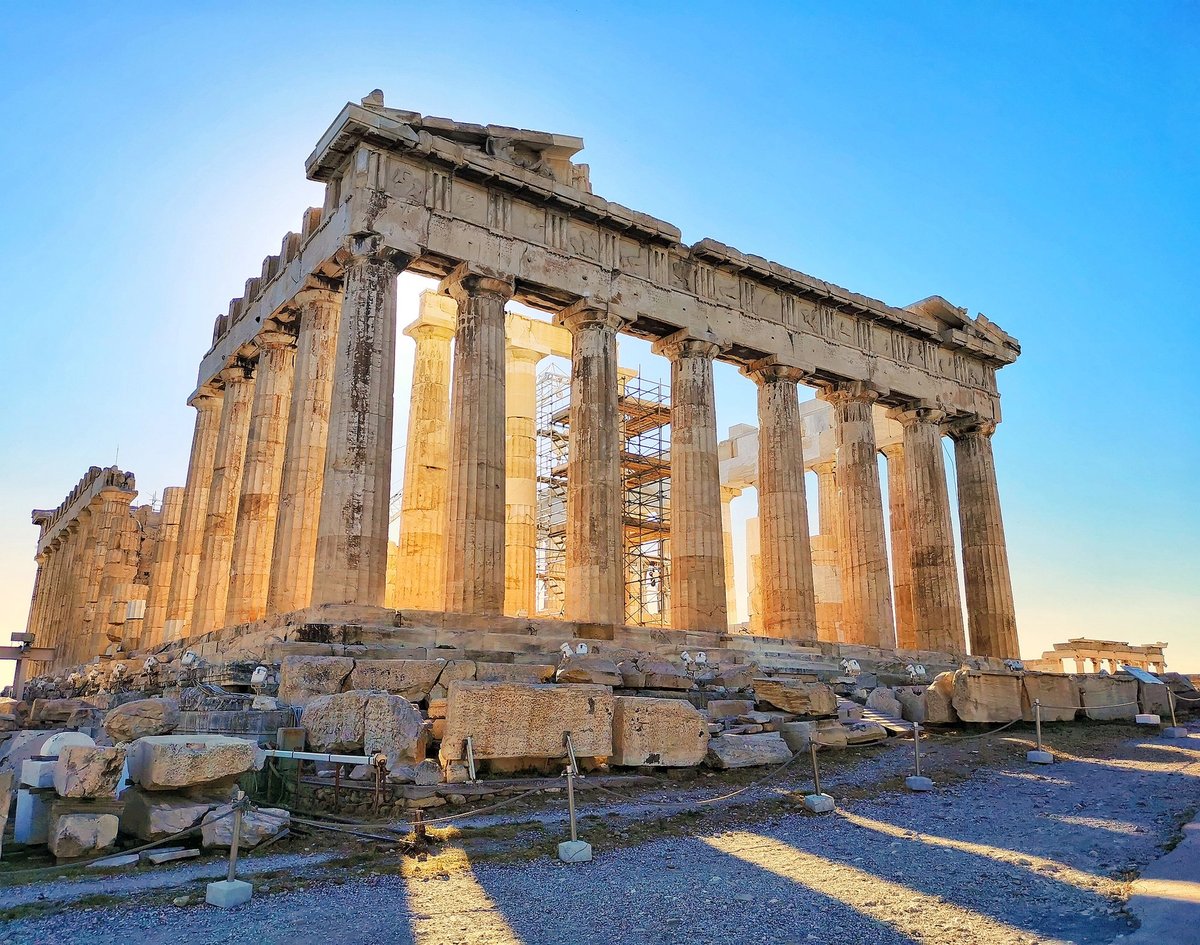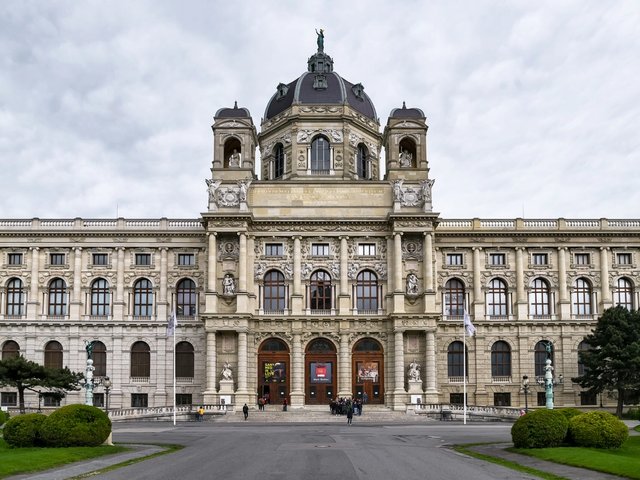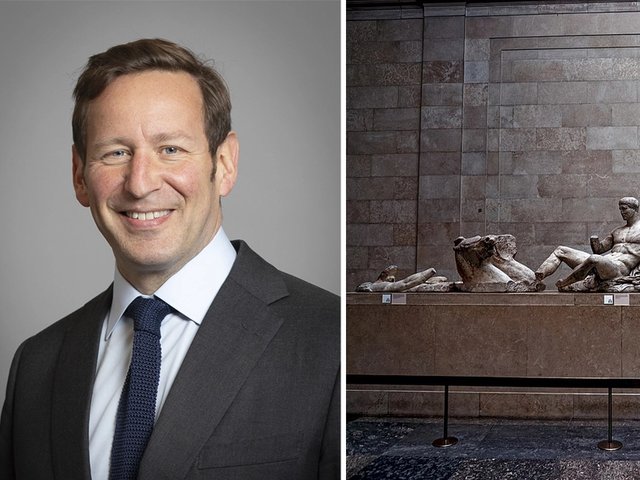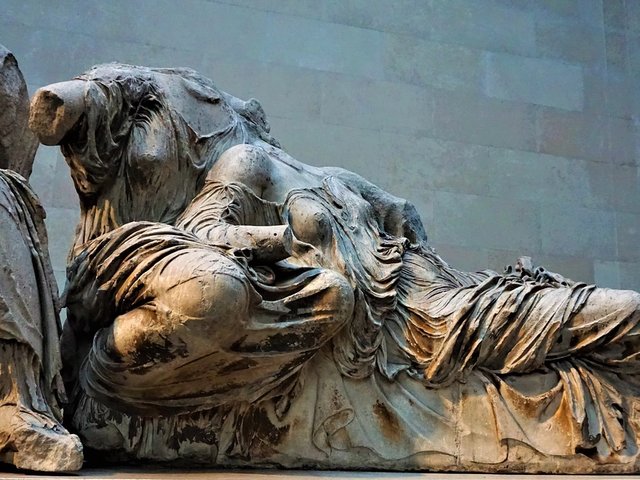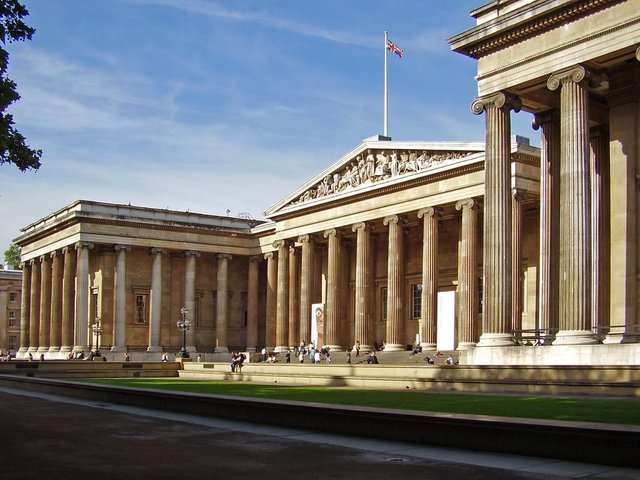A museum in Italy has agreed to return a Parthenon fragment to Greece as part of a four-year loan arrangement, fuelling the debate over the reunification of the Parthenon Marbles housed at the British Museum in London since the early 19th century. The marble fragment, which depicts the foot of a goddess, comes from the collection of the Antonino Salinas Regional Archaeological Museum in Palermo, Sicily.
In return, the Acropolis Museum in Athens will loan the Palermo museum a fifth-century BC headless statue of the goddess Athena and an eighth-century BC amphora as part of an extensive cultural exchange agreement. The move “opens the way for the return to Greece of the other Parthenon friezes kept today in other European cities and above all in London at the British Museum”, Nikolaos Stampolidis, the director of the Acropolis Museum, told the Italian press agency Ansa.
📍Επιστρέφει στην #Ελλάδα το #θραύσμα του #Παρθενώνα από το @MuseoSalinas στο #Παλέρμο της Ιταλίας για να εκτεθεί στο Μουσείο #Ακρόπολης
— Υπουργείο Πολιτισμού (@cultureGR) January 5, 2022
Ξεκίνησαν οι συζητήσεις για τον οριστικό επαναπατρισμό του στην #Αθήνα
👇https://t.co/4kyMP2Iot8#MinCultureGR #parthenon #greece #italy pic.twitter.com/8P9PgFPjU1
The fragment from the Antonino Salinas Regional Archaeological Museum in Palermo, Sicily
The Parthenon fragment was bought by the University of Palermo from the estate of Robert Fagan, the former British consul for Sicily, around 1816. Negotiations between Sicily and Athens began in November 2020, says the Greek culture minister, Lina Mendoni; the loan agreement can be extended once, says the Ansa report.
“Sending back to the context of its origins a small, but significant, fragment belonging to the Parthenon has a very strong symbolic value,” Sicily’s councillor for culture, Alberto Samonà, told the UK newspaper the Guardian. “It is also a response to the international debate [about the Parthenon artefacts]. For us, this is a gesture of friendship; Greece and Sicily are two areas of the Mediterranean that share a common story.” Samonà added that the fragment loan transfer could become permanent; he had not responded to a request for further comment at the time of writing.
In the past months, the debate around the British Museum returning the Parthenon Marbles have ramped up. In November last year, the Greek prime minister, Kyriakos Mitsotakis, raised the issue in a meeting with the UK prime minister Boris Johnson. Johnson then went on to say that the decision for returning the Parthenon Marbles to Greece lie in the hands of the trustees of the British Museum. The issue was further fuelled when the former UK culture minister Ed Vaizey said in a podcast interview that he believed the Marbles should be returned and by revelations that Johnson had written an article in 1986, during his time at Oxford University as a classics student, also in favour of their return.
The Parthenon sculptures have been housed at the British Museum since 1817 after they were removed from the Parthenon temple on the Acropolis in Athens by the Scottish nobleman Lord Elgin, the then ambassador to the Ottoman court. In an online statement, the trustees of the British Museum say that Elgin acted with the full knowledge and permission of the legal authorities of the day in both Athens and London.


